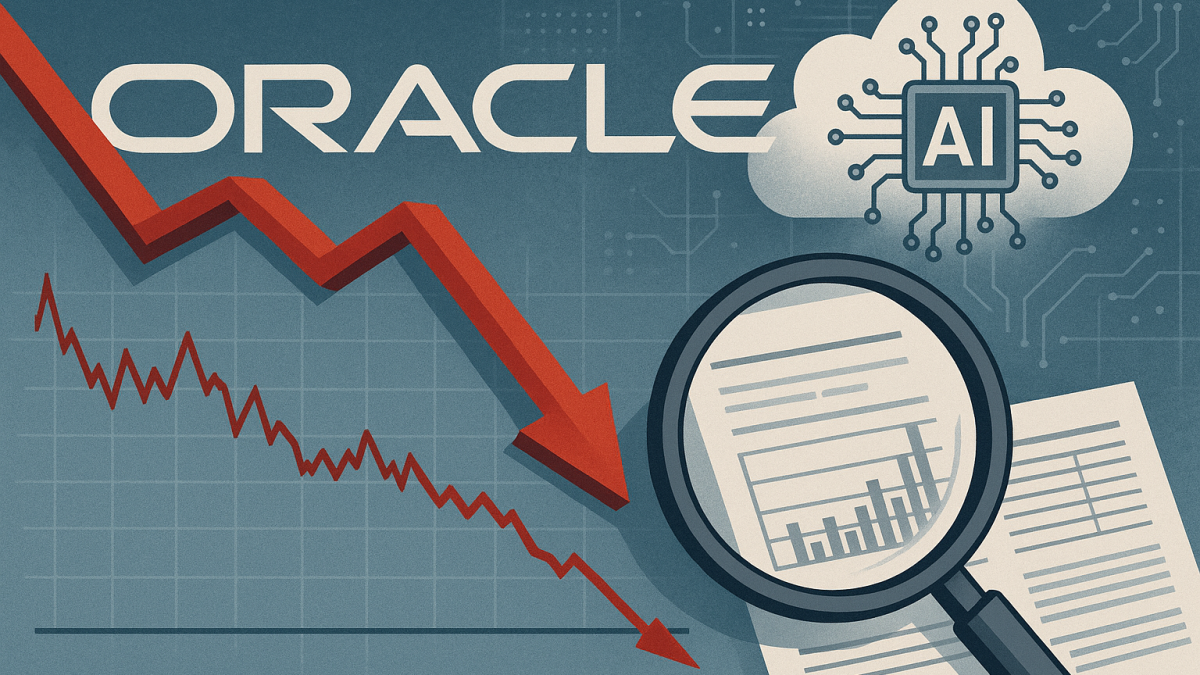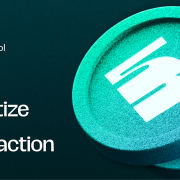Oracle Corp. is facing renewed investor scrutiny after a sharp selloff in its shares this week, fueled by concerns that the company’s highly touted artificial intelligence partnership with OpenAI may not deliver the expected financial benefits.
The decline comes just weeks after the software giant issued an upbeat forecast for cloud revenue growth, which initially boosted market sentiment.
Stock drops into correction territory
Oracle shares were trading at $296.98 down 3.72% from the previous day.
Oracle shares have now fallen for three consecutive sessions, dropping 9.7% over the period and placing the stock in correction territory.
Shares are now down 14% from their all-time high reached on Sept. 10.
On Thursday, the stock continued to slide, reflecting growing investor anxiety about whether the broader AI-driven trade is losing momentum.
The retreat in Oracle shares follows a strong run-up earlier in September, when optimism around the company’s cloud business, and its role in supporting OpenAI’s operations, drove valuations to record highs.
Analysts note, however, that some of the weakness could be attributed to traders locking in profits after the recent rally.
Still, concerns are mounting that Oracle’s growth narrative may be more fragile than previously thought, particularly given the risks of inflated valuations and the complex nature of its partnership agreements within the AI ecosystem.
Redburn issues sell rating
Investor caution sharpened after Rothschild & Co. Redburn analyst Alex Haissl issued a rare sell rating on Oracle, setting a price target of $175.
That target implies a potential 43% decline from Wednesday’s closing price.
In a note to clients, Haissl argued that the market “materially overestimates the value of Oracle’s contracted cloud revenues,” pointing to the structure of its $300 billion deal with OpenAI.
He said Oracle’s role in supporting large-scale AI deployments resembles that of a financier rather than a traditional cloud provider, with margins significantly thinner than many investors expect.
“The market already recognises that supplying compute to OpenAI is a lower-margin business – but still assumes it will follow the Cloud-1.0 playbook, where economics improved over time through higher asset utilisation and software layering,” Haissl wrote.
“That framework does not apply here. Oracle’s economics are largely fixed and contracted, with the upside accruing to OpenAI.”
Haissl also noted that Oracle’s involvement is further constrained by OpenAI’s operational control of “Stargate,” its advanced supercomputing infrastructure, which limits Oracle’s ability to capture additional value from the partnership.
Broader market context
Haissl’s assessment contrasts sharply with the broader analyst community, where 33 out of 44 analysts covering Oracle rate the stock a “buy” or “strong buy,” according to LSEG data.
His bearish stance underscores a shift in how investors may start evaluating AI-related deals more critically, focusing on profitability rather than headline contract values.
The skepticism around Oracle mirrors episodes earlier in the year, when AI stalwarts like Nvidia came under pressure amid fears of rising competition and geopolitical uncertainty.
Nvidia shares, for example, faced a steep selloff on concerns that the emergence of DeepSeek could dampen demand for its high-end processors.
The chipmaker has since rebounded, with its stock up more than 30% in 2025.
For Oracle, the recent pullback highlights both the opportunities and risks tied to the AI boom.
While the company’s cloud infrastructure remains a core part of the sector’s expansion, investor attention is shifting toward the economic fundamentals of these large-scale partnerships.
Whether Oracle can translate its high-profile OpenAI deal into sustainable value will likely remain a key question for markets in the months ahead.
The post Oracle shares slide as analyst questions AI cloud deal economics appeared first on Invezz





